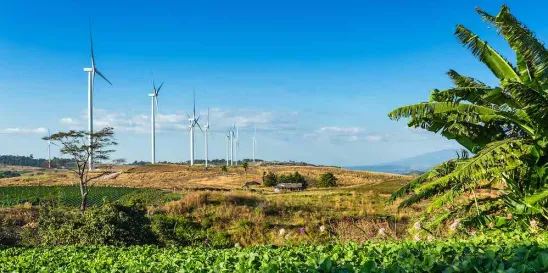The 28th Conference of Parties (COP28) to the United Nations Framework Convention on Climate Change (UNFCCC) negotiating process will take place in Dubai, United Arab Emirates, beginning today, November 30, through December 12. As in the past, we are closely following the events on the ground in Dubai and the actions taken and the commitments made toward achieving the climate change goals of the 2015 Paris Agreement.
The themes of COP28, set by the host nation, include technology and innovation (aligning on actions by governments and the private sector to limit warming to 1.5°C); inclusion (engagement with diverse peoples); frontline communities (ensuring the most climate-vulnerable communities can adapt); and finance (funding to close the finance gap on adaptation and the energy transition and aligning public and private finance with the Paris Agreement’s goals). Beyond these themes – that will guide the two-week negotiations – there are a few specific issues we expect to be a priority at COP28, which we briefly discuss below and intend to follow closely.
COP28 is the first time there will be a global stocktake, which is a Paris Agreement mechanism to collectively review each nations’ greenhouse gas emissions to understand the progress toward meeting the goals of the Paris Agreement. The purpose of the global stocktake is to encourage nations to ramp up their climate change mitigation actions and their respective Nationally Determined Contributions (NDCs). The timing of the global stocktake is notable given that earlier this month was the first day that the average global temperatures were briefly 2°C above pre-industrial levels and the fact updated NDCs are to be established by 2025. The conclusions of the global stocktake could have implications for both international and domestic climate change-focused legal frameworks.
Another priority in Dubai will be an attempt to finalize the “loss and damage” fund established during COP27, a fund to help vulnerable countries – which often contribute less greenhouse gas emissions – to recover and rebuild from climate change-driven damage. The key question is who will pay into this fund, which is supposed to be capitalized with $100 billion, but to date is lacking those funds. There is also questions whether $100 billion is sufficient. Given the “developed” versus “developing” nation dynamic associated with the loss and damage fund, this issue in particular could play a spoiler to achieving further progress at COP28 to meet the goals of the Paris Agreement.
Global carbon markets and continuing implementation of Article 6 of the Paris Agreement is another priority agenda item at COP28. During COP26, the overarching rules for Article 6 carbon markets were established, but there are still questions on implementation. For example, for Article 6.2 markets (i.e., trading carbon offsets between countries to meet NDCs), there are still questions associated with the process for authorization of emission reduction actions. There are bigger outstanding issues with Article 6.4 markets (i.e., trading carbon offsets involving private and public entities), where the rules, methodologies, and procedures need to be finalized to unlock the potential of a centralized global carbon market to cost-effectively drive down greenhouse gas emissions.
Lastly, a key political question is the future of fossil fuels and what the answer to that question means for the implementation of the Paris Agreement. Leading up to COP28, we saw divergent priorities, including around the question of whether fossil fuels should be “phased down” or “phased out.” Further, some nations want to focus on the development of technological solutions to greenhouse gas emissions. The development, use, and scaling up of carbon capture and sequestration technologies to reduce the emission of carbon dioxide from traditional fossil fuel-focused industrial sectors is an issue that generates strong and diverse opinions. On the other hand, several nations and many non-governmental organizations want to focus on increasing the ambitious requirements of the existing frameworks under the Paris Agreement.
How these themes and the potential differences in nations’ priorities play out in Dubai will determine the fate of COP28.









 />i
/>i

